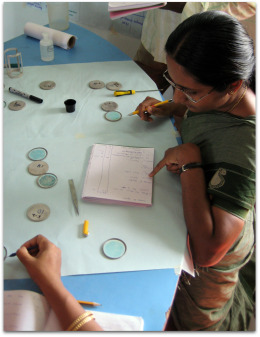TS - Introduction
| |
|
|
|
|
|
|
|
|
Technological sustainability emphasizes two things, that a system be a right fit for the community and of a high enough quality to last long-term.
It is wise to strengthen the capacity of key stakeholders in a project, to make informed technology choices; and strengthen the production, construction and maintenance capacities of local providers as to be capable to respond to demands, opportunities and ideas from consumers and investors. Technologies should be locally appropriate and context-specific, affordable, durable and demand-driven.
There is a twofold approach:
1. Adapt the WASH technologies to the context where they are being used
- Preference for the use of locally made/available designs and materials
- The technology should not exceed the levels of complexity that match the expertise levels of people involved (users, mechanics, implementers)
- Use of options that are already available on the market, supply chains and service chains in place; and replicable
- Adhere to local rules, regulations, standards
- The technology should be in compliance with the need
- The selected technology should be affordable
2. Adapt the context to the technologies needed to deliver the WASH services
- Influence policy to include the technologies in use in local standards and regulations
- Involve local entrepreneurs in the establishment of the wash service
- Train local stakeholders (technical sustainability)
- Introduce sustainable means of financing of WASH in investments and O&M
- Introduce appropriate revenue systems
CAWST training programs
Training people to build, use and maintain a water technology is an important step in ensuring the sustainability of that technology. CAWST is an NGO with an extensive training program, for example, which covers the following topics:
- Introduction to Household Water Treatment and Safe Storage (HWTS) Workshop
- Biosand Filter Project Implementation Workshop
- Introduction to Low Cost Sanitation
- Drinking Water Quality Testing
- Monitoring and Evaluation
- Household Rainwater Harvesting
- Community Health Promotion Workshop
- Project Planning Workshop
- WASH Education and Training Resources
Acknowledgements
- Technical Sustainability. Dutch WASH Alliance.
- Training Programs. CAWST.

